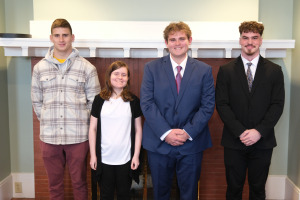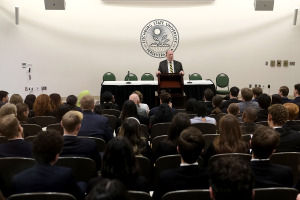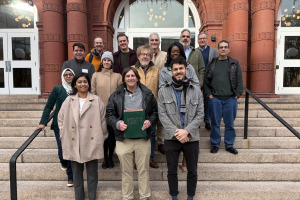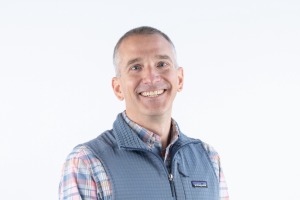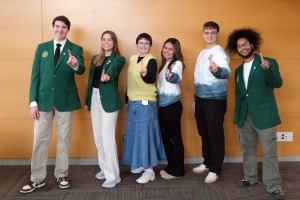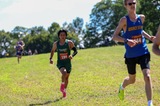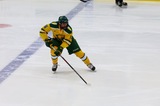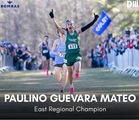
- Admissions
- Tour
- MapGift of Class of 2012
- Directory
- Hours of Operation
- Shuttles
- Athletics
- Blackboard
- Seats Lists
- College Scheduler
- MyFalconSSB for Students
- FacultySSBSSB for Faculty
- Library
- Emergency
- Falcons Care CenterConcernCenter
- Indoor Maps
- Technology Help Desk Chat
- Technology Systems Status
- News
- Video
- Calendar
- Catalog
- Alumni
- Give
- University Website
- Athletics Website
- Dining Website
- Bookstore Website
- Gear Shop Website
- About
Latest News
- Students compete in College Fed ChallengeLearning never ends. For four dedicated Fitchburg State University students on the College Fed Challenge (CFC) team, their deep dive into economics led to an unforgettable experience, cultivated through the teaching and coaching of Professor Ozge Ozay from Fitchburg State’s Economics, History, and Political Science Department. The students that competed in the CFC were Andrew Novak, Andrew Woods, Rocco Zimei, and Paige Levesque. “What I really learned is about how the Fed operates mostly and how their meetings go and how I can translate that into my own life,” said Zimei, a senior studying international business and economics. “I wouldn’t have known that previously without taking this course.” The CFC is a prestigious competition hosted by the Federal Reserve that bridges the gap between theory and practice, bringing real-world economics into the classroom. Student teams assume the role of central bank policymakers, analyzing current economic conditions to formulate and present a strategic recommendation for U.S. monetary policy. This academic event is highly valued for pushing students beyond textbook learning, helping them cultivate practical skills essential for professional success, including critical thinking, public speaking, teamwork, and leadership. Teams participating in the CFC make presentations and deliver their findings to a panel of expert judges with deep knowledge of economics and monetary policy. “It was a very cool experience preparing for this and getting a lot of knowledge,” said Novak, a junior studying economics. “We took a very deep look into how the economy works. It was very insightful.” The presentations are expected to hit on key elements, including an analysis of current economic conditions, a forecast of near-term economic and financial conditions relevant to the formulation of monetary policy, a discussion of potential risks to the economy that should receive special attention, and a monetary policy recommendation. Following the presentations, teams answer questions from judges about recommendations made in their presentations during a maximum 15-minute question and answer session. Working as a cohesive classroom team stood out to Levesque, a senior studying international business and economics. “We had to work as a team and our best score was for our teamwork,” she said. “I would recommend this class. It was a lot of work, but it was also very informative at the same time. It was a unique experience to get to compete in the challenge. It’s not like you normally have the opportunity to do something like that. I’m glad I had the opportunity to take this course.” The students took the online challenge at Percival Hall. “Overall it was really fun,” said Woods, a junior studying economics. “It taught me the interworking of the Federal Reserve, and it gave me more of a love for economics.” The judges determine the winner by scoring teams on four areas: economic analysis, Q&A performance, teamwork, and presentation quality. The top-scoring team wins the competition. “This is the second time I’ve taught College Fed Challenge and had the opportunity to coach the students for their presentation and Q&A,” said Ozay. “It’s challenging to prepare four to five students for a presentation that takes place mid-semester, but CFC proves to be experiential learning at its best. It’s truly a privilege to sit down and study the current macroeconomic conditions, investigate upcoming data and surveys, read economic magazine pieces together, and offer input as they develop their presentation. “In large classes, you don’t really get to know students that well, but with a small group working on a collaborative project like this, you learn about their lives, families, friends, and what’s important to them,” said Ozay. “I truly enjoy teaching this course, and I’m proud of what the team has accomplished this semester.” Fitchburg State was in the same bracket as Harvard, Boston College, Dartmouth, and the University of Vermont. Novak made sure to credit Professor Ozay for her insight, wisdom and professionalism in teaching this course. “She’s awesome. I love her classes,” said Novak. “She teaches well and knows how to structure classes the right way to keep us on track.”
- University to compete in Moot Court tournamentQuestions concerning a legal challenge to a public university's affirmative action policy—which aims to increase the number of women in law enforcement and national security—will be debated by students at the American Moot Court Association's Eastern Regional tournament on November 21 and 22 at Fitchburg State University. The hypothetical case this year has a second issue, addressing the First Amendment rights of public employees. In this instance, an adjunct professor's contract is not renewed after he speaks out against the policy. Students competing in moot court argue both sides of a hypothetical legal case before panels of judges, simulating an appellate court proceeding. Professor Paul I. Weizer of the university’s Economics, History and Political Science Department has coached the university’s Moot Court program since its inception. The program has a strong history of sending teams to advanced rounds of the national tournament, including high scores for students drafting legal briefs on the case before them. Fitchburg State is one of 17 regionals held nationwide. “Fitchburg has been a longtime host and is always happy to welcome top competition from around the country to our campus,” said Weizer. The list of schools competing in this regional include: Bentley University, Cal-State Fullerton, Cal-State Long Beach, College of the Holy Cross, Emerson College, Fitchburg State University, Framingham State University, Liberty University, Marist University, Merrimack College, University of Pennsylvania, and Western Connecticut State University. “Students will argue before real judges and lawyers in this competition, demonstrating the ability to present a multifaceted, complex legal argument, to think on their feet, to respond to questions, and to respond under duress,” said Weizer. Senior Michael Burns, a history major with a minor in political journalism, says that he’s extremely excited to be able to represent Fitchburg State in this competition. “As a student-athlete, I usually use the pride I have for the school and the comradery for my team to push me to perform at my best, and it's very similar in Moot Court,” said Burns, who is a four-year member of the cross country and track programs. “The path that the whole team has been on since the beginning of the semester is one I couldn't imagine myself getting so far down.” Burns said that he’s sharpened his abilities in legal briefings and important case law, but more importantly he’s learned how to bring hours of legal research and turn it into 10 minutes of arguments. “We have great coaches who pepper questions in a way that makes all of the team members a tough foe to come across in the regional competition,” said Burns. Maggie Bourgeois, a senior majoring in political science with a concentration in American government/law, and a minor in international studies, said that competing in Moot Court allows her to spend a vast amount of time creating an argument that she will have to defend. “By competing against other students and practicing these arguments in class, I have gained confidence in public speaking that I did not have at the start of my Moot Court experience,” said Bourgeois. “In competing against other schools during the tournament, it reaffirms my passion of pursuing a career in legal advocacy, and affirms I am just as capable as other peers from different schools. This process has given me the ability to hold myself accountable to continuously improving outside of the classroom. Furthermore, I have learned to be proud of the effort you make to prepare yourself for competition day.” This is the 25th year of Moot Court at Fitchburg State, and there will be a Falcon reunion from 5-7 p.m. on Saturday, Nov. 22 at Hammond Hall’s Falcon Hub. Attendees may register online at https://alumni.fitchburgstate.edu/e/moot-court-25th-anniversary-reunion/. “We have an impressive record of success over the years at both the regional and national levels,” said Weizer. “Many of our alumni have gone on to careers in law and related fields. I look forward to welcoming many of them back for the 25th anniversary celebration.” Learn more about the tournament, and view the full text of this year’s case problem, at https://www.amcamootcourt.org/about.
- Universities tackle local news crisisHow can universities and their students be a part of the solution to the dearth of community journalism? That was one of many important topics discussed as 15 faculty and staff representing Fitchburg State University, UMass Amherst, Worcester State University, Brandeis University, Holyoke Community College, Suffolk University, Eastern Connecticut State University, the University of Rhode Island, the University of Hartford and the University of Vermont assembled at the Fitchburg State campus for a day of local news and academic collaboration. Sponsored by the University of Vermont's Center for Community News (CCN), the training and organization session achieved two key goals: to brainstorm and share actionable ideas for student contributions to local media, and to build and strengthen vital community partnerships. CCN is a nonpartisan organization that was established in July 2022 to grow and strengthen university-led reporting programs across the U.S. “These programs are a triple win, students get real experiences, building their networks and clips, local media gets professionally edited content and universities meet their mission to support their communities,” said Director of CCN at the University of Vermont Richard Watts. “But it starts with faculty – and it was great to be in a room with such smart, innovative and entrepreneurial faculty committed to their students and local news. Thanks to (Fitchburg State Associate Professor of English Studies) Wafa (Unus) and Fitchburg State for pulling this together.” Brandeis University’s Journalism Program Director Neil Swidey said that there’s a real benefit to people realizing that they are not doing this work all alone. “There are other people out there with similar ambitions and hopefully we can save some people some time and frustrations by creating these mechanisms for sharing ideas and wisdom,” said Swidey. “Journalism is the cornerstone to democracy.” Swidey said the core principles of journalism are essential for an informed populace to understand what is happening in their communities and to drive better decisions. Partnerships between local media and journalism students are a win-win, said Suffolk University Associate Professor of Practice in the Communications and Journalism Department Charles St. Amand. “It’s a two-way street,” said St. Amand, a journalism veteran and former editor at the Sentinel & Enterprise newspaper in Fitchburg from 2010-2017. “The students get clips in a professional setting and the local newspapers are able to maybe put their short-staffed staff on more substantial journalism that the community needs. “We don’t owe it to the (media) owners, we owe it to communities that aren’t being served,” he said. That work has already moved forward at Fitchburg State by partnering with local media outlets, including Fitchburg Access Television, and the Sentinel & Enterprise and the Harvard Free Press newspapers. “I certainly feel a sense of pride in the work that we’ve done,” said Unus. “Our students are fantastic in their ability to adapt to their circumstances. In part I think our students are really best situated to do this because they have lived experiences that align with a lot of the social challenges that we’ve facing. In journalism, that’s always a positive to have people that have real lived experiences within the things that we need to cover, within the social issues or the civic issues that we need to address.” Unus said that it is wonderful that Fitchburg State has established partnerships with several local media outlets, but it’s born out of need. “It’s hard to come into Fitchburg and not feel the absence of local news,” she said. “Partnerships have been slow to develop and we’re still formalizing them, but I think if Fitchburg State can do one thing in this space, I think it is to be a leader because the city requires it and needs it so desperately. It’s geographically important, and the student body is very much attuned to the needs that we all feel socially and civically. I think we are well situated to be a leader in this space, and I think we’ll get there.” Watts said that the core to this mission is that universities are giving students these experiences in the curriculum. “It’s really less about training students to be journalists than helping students be better citizens,” said Watt. “You can structure assignments that students can do that also meet local news needs.” Watts stressed that student reporters are not replacing seasoned local beat reporters. “They should never think about us as somebody that they can totally count on,” said Watts. “These are stories that they’re never going to get to, all those community fabric stories that make such a difference in their community but they just can’t get to them. First and foremost, our responsibility is to our students to give them this rich experience, and we’re contributing to local news. “We’re not trying to save journalism, save what once was, we’re trying to invent what comes next,” he said.
- Sheil ‘12 recognized as a MassCUE PathfinderCraig Sheil, a Fitchburg State University graduate adjunct instructor in the School of Education, recently was recognized as one of the MassCUE Pathfinder Awardees this year at the 2025 MassCUE conference at Gillette Stadium in Foxboro. “It is such an honor to be recognized for this award,” said Sheil. “I am certainly proud of the work that I have done along my educational journey.” The MassCUE’s Pathfinder Award is presented to a Massachusetts educator and leader whose efforts have enhanced the field of educational technology. This person has gone “above and beyond” in demonstrating leadership and providing inspiration to other educators. Sheil shared this year’s MassCUE Pathfinder award with Dr. Rayna Freedman, a fifth-grade teacher at Jordan Jackson School in Mansfield. Sheil has been in the public education field full time for the past 23 years. His first eight years were as a high school mathematics teacher, before making the transition to a digital learning specialist where he currently supports the staff at Bedford High School in Bedford N.H. in using technology purposefully. “It certainly is not a dull moment as we continue to navigate this world of AI and what that might look like in the educational setting,” said Sheil, who completed his master’s degree at Fitchburg State University in 2012. “I love that I am able to take learnings from this role and apply it to the classes that I co-teach or teach at Fitchburg State University and vice versa taking the learnings from the courses and applying it to my role as a digital learning specialist.” Massachusetts Computer Using Educators (MassCUE) is a non-profit, 501(c)3 professional organization for educators with a passion for digital teaching and learning.
- Campus Celebration of First-Generation SuccessFitchburg State University recently celebrated First Generation Day, highlighting the experiences of students who represent the first in their families to attend college. The keynote address was given by Dustin Hodge, husband of university President Donna Hodge, who described his long and nonlinear path to eventually graduating from Arizona State University. “My parents didn’t go to college,” said Hodge, an Upward Bound alum when speaking to an audience featuring students in TRIO Student Support Services, Upward Bound and Upward Bound Math and Science in his address at Hammond Hall. “I did and it changed my life. That version is easy to tell — but it’s not the whole truth. Real first-generation stories are rarely simple. They’re messy, complicated and full of twists you don’t see coming. Mine certainly is.” Hodge is a writer and documentary filmmaker who has produced more than 275 episodes of national television and led media projects in over 30 countries. His work, featured on PBS, the History Channel, CBS, and RFD-TV, highlights the stories of underserved and underrepresented communities. Additionally, he served as a producer for The Tight Rope podcast, hosted by Cornel West. Guests on the podcast have included Killer Mike, Daveed Diggs, and Jane Fonda. Hodge was the first in his family to attend college, but his journey wasn’t an easy four-year march to graduation. “I struggled with life outside of class,” said Hodge. “I moved six times in one semester. But I didn’t ask for help. I was afraid that if people found out I was a first-gen student, they’d think I didn’t belong. So I struggled quietly, and no one noticed.” Hodge said that the reason why he loves Fitchburg State is because it’s different here. “Because here, people do notice,” said Hodge. “Professors, staff, coaches — even the president — they see you. They will check on you. So remember this, you are important. You matter. It’s OK not to know how things work. It’s OK to make mistakes. It’s OK to feel lost, or frustrated, or embarrassed. Those feelings are normal. “The person you are when you first set foot on campus is not the same person who leaves four years later,” he said. “You’ll be stronger, more confident, and you’ll have something powerful —momentum.” Hodge said that he lost his momentum. Like his parents, Hodge was working two or three jobs at a time. He went from taking five classes a semester to three, to one and then zero. “My mom kept encouraging me to finish my half-completed degree,” said Hodge. “She wanted me to have a chance she never got. Finally, I relented and promised her I’d go back to college.” Unfortunately, his mother passed away before he could return to school. “Losing her changed everything,” said Hodge. “It reminded me how fragile life is — and how important it is to spend it doing something meaningful.” Hodge said he felt like he missed his chance to go back to college, so he took a leap of faith into something completely new: storytelling. He got a job in television at the ground level, carrying tables, chairs, and coffee as a production assistant. “I showed up with a smile,” said Hodge. “I learned and little by little, carrying things led to running a camera, which led to cinematography, directing and eventually producing.” Still, without a degree, there was a limit to how far he could go. “And just as importantly, I had made a promise that I hadn’t kept,” said Hodge. So more than a decade later, he went back to college. “I felt like it was too late, but it wasn’t,” said Hodge. “I finished my undergraduate degree. Then I went straight into grad school and finished a degree in writing. I used my education to enhance my job skills.” Hodge’s message is simple: believe in yourself and achieve your goals and dreams. “If you haven’t done so already, tell people you’re going to get your degree,” he said. “Say it out loud. Speak it into existence. Make a promise and keep it. Once you have momentum, no obstacle can stop you.” Director of TRIO Student Support Services Elizabeth Swartz facilitated the event, and conducted a question and answer session with a panel composed of faculty, staff, and students. The Fitchburg State first-generation students on the panel were: Leah Alker, Julia Arena, Justin Conner, Geybrell Liriano and Aidan Thompson. Faculty and staff panelists included: Professor and Psychological Science Department Chair Laura Garofoli, Dean of Students Tim St. John, Academic Advisor in TRIO Alyssa Annese, and Associate Director of Financial Aid Andrea Johnston. Panelists said that being the first in the family to attend college is an extraordinary achievement. It means setting an example for those who come after you. The journey is also inspiring because it shows that barriers aren't insurmountable. “It’s a cool feeling, but it’s stressful,” said Conner, a senior interdisciplinary studies major. “There’s a lot of pressure on me because of it, but just knowing that I was able to do something that my family, not necessarily had the ability to do, I’m excited but it’s nerve wracking to also graduate.” Arena, a Presidential Ambassador, clinical exercise and sports science major who also works three jobs on campus, discussed an experience where she had to navigate different expectations between home life and college life. Arena’s family used to live approximately 40 minutes from Fitchburg State, but moved to Florida last year. “My home life prepared me for living on my own because I had a lot of responsibilities at home,” said Arena. “I think I was pretty well prepared for college, but I think what I wasn't prepared for and it’s especially true this year, was that feeling of, ‘Oh, now I’m really independent.’ There’s a difference between moving to college and living away from your family that a lot of people don’t necessarily experience. My best advice in handling something like this is to lean on all the resources we have at school. If you have something you need help in, we have a resource to help you.” Faculty and staff had a message for each student embarking on the college journey. “Figure out how to advocate for yourself,” said Garofoli. “You have to build that muscle to advocate for yourself.” “Don’t be afraid to fail,” said Annese. “Try literally everything here.” There are so many ways to do college, said St. John. “The right way is your way,” said St. John. “No pathway to graduation is the same for everybody. Every path to graduation is the right path. Keep that end goal in mind.” Johnston said that she would tell her high school self to not write off her local state university campus just because of its proximity to home. “There’s value in a degree from a state university,” said Johnston. “I truly believe that Fitchburg State is the No. 1 state university and I think we’re doing really great things here.”
Latest News
- Students compete in College Fed ChallengeLearning never ends. For four dedicated Fitchburg State University students on the College Fed Challenge (CFC) team, their deep dive into economics led to an unforgettable experience, cultivated through the teaching and coaching of Professor Ozge Ozay from Fitchburg State’s Economics, History, and Political Science Department. The students that competed in the CFC were Andrew Novak, Andrew Woods, Rocco Zimei, and Paige Levesque. “What I really learned is about how the Fed operates mostly and how their meetings go and how I can translate that into my own life,” said Zimei, a senior studying international business and economics. “I wouldn’t have known that previously without taking this course.” The CFC is a prestigious competition hosted by the Federal Reserve that bridges the gap between theory and practice, bringing real-world economics into the classroom. Student teams assume the role of central bank policymakers, analyzing current economic conditions to formulate and present a strategic recommendation for U.S. monetary policy. This academic event is highly valued for pushing students beyond textbook learning, helping them cultivate practical skills essential for professional success, including critical thinking, public speaking, teamwork, and leadership. Teams participating in the CFC make presentations and deliver their findings to a panel of expert judges with deep knowledge of economics and monetary policy. “It was a very cool experience preparing for this and getting a lot of knowledge,” said Novak, a junior studying economics. “We took a very deep look into how the economy works. It was very insightful.” The presentations are expected to hit on key elements, including an analysis of current economic conditions, a forecast of near-term economic and financial conditions relevant to the formulation of monetary policy, a discussion of potential risks to the economy that should receive special attention, and a monetary policy recommendation. Following the presentations, teams answer questions from judges about recommendations made in their presentations during a maximum 15-minute question and answer session. Working as a cohesive classroom team stood out to Levesque, a senior studying international business and economics. “We had to work as a team and our best score was for our teamwork,” she said. “I would recommend this class. It was a lot of work, but it was also very informative at the same time. It was a unique experience to get to compete in the challenge. It’s not like you normally have the opportunity to do something like that. I’m glad I had the opportunity to take this course.” The students took the online challenge at Percival Hall. “Overall it was really fun,” said Woods, a junior studying economics. “It taught me the interworking of the Federal Reserve, and it gave me more of a love for economics.” The judges determine the winner by scoring teams on four areas: economic analysis, Q&A performance, teamwork, and presentation quality. The top-scoring team wins the competition. “This is the second time I’ve taught College Fed Challenge and had the opportunity to coach the students for their presentation and Q&A,” said Ozay. “It’s challenging to prepare four to five students for a presentation that takes place mid-semester, but CFC proves to be experiential learning at its best. It’s truly a privilege to sit down and study the current macroeconomic conditions, investigate upcoming data and surveys, read economic magazine pieces together, and offer input as they develop their presentation. “In large classes, you don’t really get to know students that well, but with a small group working on a collaborative project like this, you learn about their lives, families, friends, and what’s important to them,” said Ozay. “I truly enjoy teaching this course, and I’m proud of what the team has accomplished this semester.” Fitchburg State was in the same bracket as Harvard, Boston College, Dartmouth, and the University of Vermont. Novak made sure to credit Professor Ozay for her insight, wisdom and professionalism in teaching this course. “She’s awesome. I love her classes,” said Novak. “She teaches well and knows how to structure classes the right way to keep us on track.”
- University to compete in Moot Court tournamentQuestions concerning a legal challenge to a public university's affirmative action policy—which aims to increase the number of women in law enforcement and national security—will be debated by students at the American Moot Court Association's Eastern Regional tournament on November 21 and 22 at Fitchburg State University. The hypothetical case this year has a second issue, addressing the First Amendment rights of public employees. In this instance, an adjunct professor's contract is not renewed after he speaks out against the policy. Students competing in moot court argue both sides of a hypothetical legal case before panels of judges, simulating an appellate court proceeding. Professor Paul I. Weizer of the university’s Economics, History and Political Science Department has coached the university’s Moot Court program since its inception. The program has a strong history of sending teams to advanced rounds of the national tournament, including high scores for students drafting legal briefs on the case before them. Fitchburg State is one of 17 regionals held nationwide. “Fitchburg has been a longtime host and is always happy to welcome top competition from around the country to our campus,” said Weizer. The list of schools competing in this regional include: Bentley University, Cal-State Fullerton, Cal-State Long Beach, College of the Holy Cross, Emerson College, Fitchburg State University, Framingham State University, Liberty University, Marist University, Merrimack College, University of Pennsylvania, and Western Connecticut State University. “Students will argue before real judges and lawyers in this competition, demonstrating the ability to present a multifaceted, complex legal argument, to think on their feet, to respond to questions, and to respond under duress,” said Weizer. Senior Michael Burns, a history major with a minor in political journalism, says that he’s extremely excited to be able to represent Fitchburg State in this competition. “As a student-athlete, I usually use the pride I have for the school and the comradery for my team to push me to perform at my best, and it's very similar in Moot Court,” said Burns, who is a four-year member of the cross country and track programs. “The path that the whole team has been on since the beginning of the semester is one I couldn't imagine myself getting so far down.” Burns said that he’s sharpened his abilities in legal briefings and important case law, but more importantly he’s learned how to bring hours of legal research and turn it into 10 minutes of arguments. “We have great coaches who pepper questions in a way that makes all of the team members a tough foe to come across in the regional competition,” said Burns. Maggie Bourgeois, a senior majoring in political science with a concentration in American government/law, and a minor in international studies, said that competing in Moot Court allows her to spend a vast amount of time creating an argument that she will have to defend. “By competing against other students and practicing these arguments in class, I have gained confidence in public speaking that I did not have at the start of my Moot Court experience,” said Bourgeois. “In competing against other schools during the tournament, it reaffirms my passion of pursuing a career in legal advocacy, and affirms I am just as capable as other peers from different schools. This process has given me the ability to hold myself accountable to continuously improving outside of the classroom. Furthermore, I have learned to be proud of the effort you make to prepare yourself for competition day.” This is the 25th year of Moot Court at Fitchburg State, and there will be a Falcon reunion from 5-7 p.m. on Saturday, Nov. 22 at Hammond Hall’s Falcon Hub. Attendees may register online at https://alumni.fitchburgstate.edu/e/moot-court-25th-anniversary-reunion/. “We have an impressive record of success over the years at both the regional and national levels,” said Weizer. “Many of our alumni have gone on to careers in law and related fields. I look forward to welcoming many of them back for the 25th anniversary celebration.” Learn more about the tournament, and view the full text of this year’s case problem, at https://www.amcamootcourt.org/about.
- Universities tackle local news crisisHow can universities and their students be a part of the solution to the dearth of community journalism? That was one of many important topics discussed as 15 faculty and staff representing Fitchburg State University, UMass Amherst, Worcester State University, Brandeis University, Holyoke Community College, Suffolk University, Eastern Connecticut State University, the University of Rhode Island, the University of Hartford and the University of Vermont assembled at the Fitchburg State campus for a day of local news and academic collaboration. Sponsored by the University of Vermont's Center for Community News (CCN), the training and organization session achieved two key goals: to brainstorm and share actionable ideas for student contributions to local media, and to build and strengthen vital community partnerships. CCN is a nonpartisan organization that was established in July 2022 to grow and strengthen university-led reporting programs across the U.S. “These programs are a triple win, students get real experiences, building their networks and clips, local media gets professionally edited content and universities meet their mission to support their communities,” said Director of CCN at the University of Vermont Richard Watts. “But it starts with faculty – and it was great to be in a room with such smart, innovative and entrepreneurial faculty committed to their students and local news. Thanks to (Fitchburg State Associate Professor of English Studies) Wafa (Unus) and Fitchburg State for pulling this together.” Brandeis University’s Journalism Program Director Neil Swidey said that there’s a real benefit to people realizing that they are not doing this work all alone. “There are other people out there with similar ambitions and hopefully we can save some people some time and frustrations by creating these mechanisms for sharing ideas and wisdom,” said Swidey. “Journalism is the cornerstone to democracy.” Swidey said the core principles of journalism are essential for an informed populace to understand what is happening in their communities and to drive better decisions. Partnerships between local media and journalism students are a win-win, said Suffolk University Associate Professor of Practice in the Communications and Journalism Department Charles St. Amand. “It’s a two-way street,” said St. Amand, a journalism veteran and former editor at the Sentinel & Enterprise newspaper in Fitchburg from 2010-2017. “The students get clips in a professional setting and the local newspapers are able to maybe put their short-staffed staff on more substantial journalism that the community needs. “We don’t owe it to the (media) owners, we owe it to communities that aren’t being served,” he said. That work has already moved forward at Fitchburg State by partnering with local media outlets, including Fitchburg Access Television, and the Sentinel & Enterprise and the Harvard Free Press newspapers. “I certainly feel a sense of pride in the work that we’ve done,” said Unus. “Our students are fantastic in their ability to adapt to their circumstances. In part I think our students are really best situated to do this because they have lived experiences that align with a lot of the social challenges that we’ve facing. In journalism, that’s always a positive to have people that have real lived experiences within the things that we need to cover, within the social issues or the civic issues that we need to address.” Unus said that it is wonderful that Fitchburg State has established partnerships with several local media outlets, but it’s born out of need. “It’s hard to come into Fitchburg and not feel the absence of local news,” she said. “Partnerships have been slow to develop and we’re still formalizing them, but I think if Fitchburg State can do one thing in this space, I think it is to be a leader because the city requires it and needs it so desperately. It’s geographically important, and the student body is very much attuned to the needs that we all feel socially and civically. I think we are well situated to be a leader in this space, and I think we’ll get there.” Watts said that the core to this mission is that universities are giving students these experiences in the curriculum. “It’s really less about training students to be journalists than helping students be better citizens,” said Watt. “You can structure assignments that students can do that also meet local news needs.” Watts stressed that student reporters are not replacing seasoned local beat reporters. “They should never think about us as somebody that they can totally count on,” said Watts. “These are stories that they’re never going to get to, all those community fabric stories that make such a difference in their community but they just can’t get to them. First and foremost, our responsibility is to our students to give them this rich experience, and we’re contributing to local news. “We’re not trying to save journalism, save what once was, we’re trying to invent what comes next,” he said.
- Sheil ‘12 recognized as a MassCUE PathfinderCraig Sheil, a Fitchburg State University graduate adjunct instructor in the School of Education, recently was recognized as one of the MassCUE Pathfinder Awardees this year at the 2025 MassCUE conference at Gillette Stadium in Foxboro. “It is such an honor to be recognized for this award,” said Sheil. “I am certainly proud of the work that I have done along my educational journey.” The MassCUE’s Pathfinder Award is presented to a Massachusetts educator and leader whose efforts have enhanced the field of educational technology. This person has gone “above and beyond” in demonstrating leadership and providing inspiration to other educators. Sheil shared this year’s MassCUE Pathfinder award with Dr. Rayna Freedman, a fifth-grade teacher at Jordan Jackson School in Mansfield. Sheil has been in the public education field full time for the past 23 years. His first eight years were as a high school mathematics teacher, before making the transition to a digital learning specialist where he currently supports the staff at Bedford High School in Bedford N.H. in using technology purposefully. “It certainly is not a dull moment as we continue to navigate this world of AI and what that might look like in the educational setting,” said Sheil, who completed his master’s degree at Fitchburg State University in 2012. “I love that I am able to take learnings from this role and apply it to the classes that I co-teach or teach at Fitchburg State University and vice versa taking the learnings from the courses and applying it to my role as a digital learning specialist.” Massachusetts Computer Using Educators (MassCUE) is a non-profit, 501(c)3 professional organization for educators with a passion for digital teaching and learning.
- Campus Celebration of First-Generation SuccessFitchburg State University recently celebrated First Generation Day, highlighting the experiences of students who represent the first in their families to attend college. The keynote address was given by Dustin Hodge, husband of university President Donna Hodge, who described his long and nonlinear path to eventually graduating from Arizona State University. “My parents didn’t go to college,” said Hodge, an Upward Bound alum when speaking to an audience featuring students in TRIO Student Support Services, Upward Bound and Upward Bound Math and Science in his address at Hammond Hall. “I did and it changed my life. That version is easy to tell — but it’s not the whole truth. Real first-generation stories are rarely simple. They’re messy, complicated and full of twists you don’t see coming. Mine certainly is.” Hodge is a writer and documentary filmmaker who has produced more than 275 episodes of national television and led media projects in over 30 countries. His work, featured on PBS, the History Channel, CBS, and RFD-TV, highlights the stories of underserved and underrepresented communities. Additionally, he served as a producer for The Tight Rope podcast, hosted by Cornel West. Guests on the podcast have included Killer Mike, Daveed Diggs, and Jane Fonda. Hodge was the first in his family to attend college, but his journey wasn’t an easy four-year march to graduation. “I struggled with life outside of class,” said Hodge. “I moved six times in one semester. But I didn’t ask for help. I was afraid that if people found out I was a first-gen student, they’d think I didn’t belong. So I struggled quietly, and no one noticed.” Hodge said that the reason why he loves Fitchburg State is because it’s different here. “Because here, people do notice,” said Hodge. “Professors, staff, coaches — even the president — they see you. They will check on you. So remember this, you are important. You matter. It’s OK not to know how things work. It’s OK to make mistakes. It’s OK to feel lost, or frustrated, or embarrassed. Those feelings are normal. “The person you are when you first set foot on campus is not the same person who leaves four years later,” he said. “You’ll be stronger, more confident, and you’ll have something powerful —momentum.” Hodge said that he lost his momentum. Like his parents, Hodge was working two or three jobs at a time. He went from taking five classes a semester to three, to one and then zero. “My mom kept encouraging me to finish my half-completed degree,” said Hodge. “She wanted me to have a chance she never got. Finally, I relented and promised her I’d go back to college.” Unfortunately, his mother passed away before he could return to school. “Losing her changed everything,” said Hodge. “It reminded me how fragile life is — and how important it is to spend it doing something meaningful.” Hodge said he felt like he missed his chance to go back to college, so he took a leap of faith into something completely new: storytelling. He got a job in television at the ground level, carrying tables, chairs, and coffee as a production assistant. “I showed up with a smile,” said Hodge. “I learned and little by little, carrying things led to running a camera, which led to cinematography, directing and eventually producing.” Still, without a degree, there was a limit to how far he could go. “And just as importantly, I had made a promise that I hadn’t kept,” said Hodge. So more than a decade later, he went back to college. “I felt like it was too late, but it wasn’t,” said Hodge. “I finished my undergraduate degree. Then I went straight into grad school and finished a degree in writing. I used my education to enhance my job skills.” Hodge’s message is simple: believe in yourself and achieve your goals and dreams. “If you haven’t done so already, tell people you’re going to get your degree,” he said. “Say it out loud. Speak it into existence. Make a promise and keep it. Once you have momentum, no obstacle can stop you.” Director of TRIO Student Support Services Elizabeth Swartz facilitated the event, and conducted a question and answer session with a panel composed of faculty, staff, and students. The Fitchburg State first-generation students on the panel were: Leah Alker, Julia Arena, Justin Conner, Geybrell Liriano and Aidan Thompson. Faculty and staff panelists included: Professor and Psychological Science Department Chair Laura Garofoli, Dean of Students Tim St. John, Academic Advisor in TRIO Alyssa Annese, and Associate Director of Financial Aid Andrea Johnston. Panelists said that being the first in the family to attend college is an extraordinary achievement. It means setting an example for those who come after you. The journey is also inspiring because it shows that barriers aren't insurmountable. “It’s a cool feeling, but it’s stressful,” said Conner, a senior interdisciplinary studies major. “There’s a lot of pressure on me because of it, but just knowing that I was able to do something that my family, not necessarily had the ability to do, I’m excited but it’s nerve wracking to also graduate.” Arena, a Presidential Ambassador, clinical exercise and sports science major who also works three jobs on campus, discussed an experience where she had to navigate different expectations between home life and college life. Arena’s family used to live approximately 40 minutes from Fitchburg State, but moved to Florida last year. “My home life prepared me for living on my own because I had a lot of responsibilities at home,” said Arena. “I think I was pretty well prepared for college, but I think what I wasn't prepared for and it’s especially true this year, was that feeling of, ‘Oh, now I’m really independent.’ There’s a difference between moving to college and living away from your family that a lot of people don’t necessarily experience. My best advice in handling something like this is to lean on all the resources we have at school. If you have something you need help in, we have a resource to help you.” Faculty and staff had a message for each student embarking on the college journey. “Figure out how to advocate for yourself,” said Garofoli. “You have to build that muscle to advocate for yourself.” “Don’t be afraid to fail,” said Annese. “Try literally everything here.” There are so many ways to do college, said St. John. “The right way is your way,” said St. John. “No pathway to graduation is the same for everybody. Every path to graduation is the right path. Keep that end goal in mind.” Johnston said that she would tell her high school self to not write off her local state university campus just because of its proximity to home. “There’s value in a degree from a state university,” said Johnston. “I truly believe that Fitchburg State is the No. 1 state university and I think we’re doing really great things here.”
Latest Athletics News
- Guevara Mateo's Run to the NCAA National ChampionshipsFITCHBURG, MA: The Fitchburg State men's cross country team will send Paulino Guevara Mateo (Cambridge, MA) to the Roger Milliken Center in Spartanburg, South Carolina, to compete in the NCAA DIII National Cross Country Championship, as announced by the NCAA Division III Men's and Women's Track and Field and Cross Country Committee.
- Jackson Earns MASCAC Player of the Week HonorsFITCHBURG, MA: Fitchburg State junior guard Jalen Jackson (San Antonio, TX) was recently named Massachusetts State Collegiate Athletic Conference (MASCAC) men's basketball Player of the Week as announced by the conference office on Monday afternoon.
- Men’s Ice Hockey Blows Past Raiders in MASCAC OpenerNASHUA, NH: The Fitchburg State men’s ice hockey team took down the Raiders of Rivier University in its MASCAC opener this evening, 6-1. Â
- Football Falls Short to Westfield on Senior DayFITCHBURG, MA: The Fitchburg State football team celebrated 16 seniors who will be departing the team and Fitchburg State in today’s loss to the Owls of Westfield State in MASCAC action, 10-7.
- Guevara Mateo Captures DIII East Regional Championship CrownHopkinton, NH –Â The Fitchburg State University men’s cross-country team finished 17th overall at the 2025 NCAA DIII East Regional Championship Cross Country Meet with a total of 483 points at the Hopkinton Fairgrounds.

































